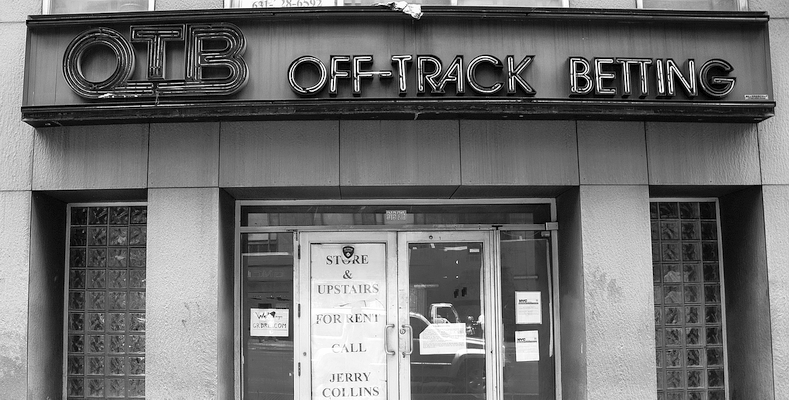A five year audit released by New York state Comptroller Thomas DiNapoli on Friday shows a precipitous drop in off-track betting compared to the previous five years ending in 2008. The nearly 25% drop amounted to $1.2 billion that was no longer being staked on races at remote tracks. Over the five year period from 2009-2013 NY residents had expanding opportunities to place wagers by Internet-based gambling, state-sponsored lotteries, nine racing tracks in the State offering VLTs, five Native American casinos in the state offering slot machines and table games, casinos in neighboring Connecticut, New Jersey and Pennsylvania and a racino in Massachusetts.
The impact of up to four new casinos authorized in 2013 has not been felt yet.
No specific numbers were available via the government website in regard to specific volumes of online OTB betting which is a legal form of betting in the state. We were also unable to find data on “Dial-a-bet” or telephone betting available to residents of most other states through regulated off-track betting corporations in New York. At the Comptroller’s behest, these activities were increased from only Capital and Nassau districts offering them in 2009 to all five (including Western, Catskill, and Suffolk districts) offering them in 2013. The corporation covering New York City sought a bailout package but went bankrupt in 2010. The remaining now offer race bets online and via telephone with advance deposits, including ACH bank transfers – to no avail.
The decline reflects a nationwide trend of gambling dollars fleeing the horse racing industry, whether live races, simulcasting at active tracks, or stand alone OTB parlors.
“The viability of OTBs is in financial jeopardy,” the Comptroller said in a statement. “Statutory payment requirements, a downturn in racing interest and major fee increases have each contributed to this plight. As competition for gambling dollars intensifies in New York, the state must reexamine the roles of OTBs. Some localities rely on this revenue to help balance their budgets and already feel the effects of this decline.”
In regard to “Statutory payment requirements”, the Catskills operator said in a statement reported on Capital New York, “OTBs do not lose money, but in fact, are required to distribute in excess of revenues received.”
DiNapoli’s report on the audit proposed that Nassau and Suffolk counties open slot parlors, and suggested the OTBs come together to negotiate better rates for rights to broadcast live racing from tracks.



